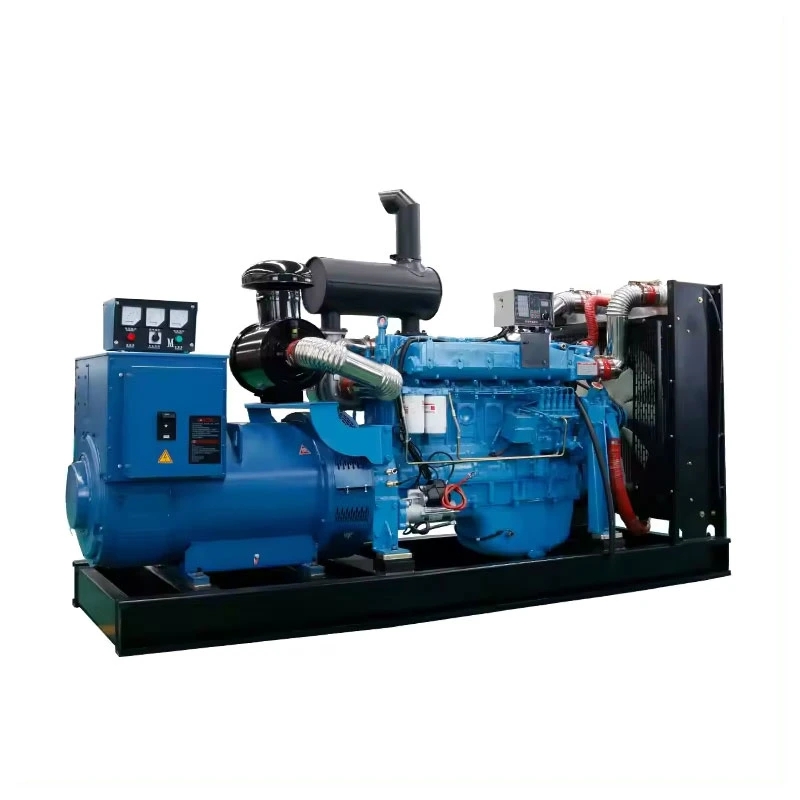Introduction
In today's modern world, electricity is an essential component that powers our daily lives. With the increasing demand for energy, the stability and reliability of power systems have become critical factors in ensuring the continuous supply of electricity. One of the key challenges faced by power systems operators is maintaining the frequency of the electricity grid within acceptable limits. Frequency regulation is crucial for ensuring the stability of the power system and preventing power outages. In this article, we will explore the role of diesel generators in providing frequency regulation in power systems.
Overview of Frequency Regulation
Frequency regulation is the process of maintaining the frequency of the electricity grid at a stable level. In an interconnected power system, the balance between electricity supply and demand is essential for ensuring the frequency remains within the acceptable range. Any imbalance between generation and demand can lead to fluctuations in frequency, which can have detrimental effects on the stability of the power system.
Frequency regulation is typically achieved through the use of automatic generation control (AGC) systems, which continuously monitor the frequency of the grid and adjust the output of generators to match the demand. AGC systems utilize various sources of generation, including fossil fuel power plants, renewable energy sources, and energy storage systems, to regulate the frequency of the grid.
Role of Diesel Generators in Frequency Regulation
Diesel generators play a crucial role in providing frequency regulation in power systems, particularly in situations where rapid response and flexibility are required. Diesel generators are known for their ability to start quickly and ramp up to full capacity within a short period, making them ideal for responding to sudden changes in electricity demand or generation.
In power systems, diesel generators are often used as reserve capacity to provide backup power during emergencies or periods of high demand. During frequency regulation, diesel generators can be dispatched to either increase or decrease their output to help stabilize the grid frequency. By adjusting the output of diesel generators in real-time, operators can ensure that the frequency remains within the acceptable range and prevent disruptions to the power supply.
Benefits of Using Diesel Generators for Frequency Regulation
There are several benefits to utilizing diesel generators for frequency regulation in power systems:
1. Fast Response Time: Diesel generators are capable of starting up and reaching full capacity within a matter of seconds, allowing them to respond quickly to changes in frequency and help stabilize the grid.
2. Flexibility: Diesel generators can be easily dispatched to provide additional generation or absorb excess power, making them a flexible and reliable source of frequency regulation.
3. Cost-Effectiveness: Diesel generators are a cost-effective solution for providing frequency regulation, especially in regions where grid infrastructure may be limited or where renewable energy sources are not readily available.
4. Reliability: Diesel generators are known for their robustness and reliability, making them a dependable source of backup power and frequency regulation in power systems.
Challenges and Limitations
While diesel generators offer many advantages for frequency regulation in power systems, there are also challenges and limitations associated with their use:
1. Environmental Impact: Diesel generators emit greenhouse gases and other pollutants during operation, contributing to air pollution and climate change. As a result, there is growing concern over the environmental impact of relying on diesel generators for frequency regulation.
2. Fuel Dependence: Diesel generators require a steady supply of diesel fuel to operate, making them dependent on fuel availability and pricing. Fluctuations in fuel prices can impact the cost-effectiveness of using diesel generators for frequency regulation.
3. Maintenance and Operation Costs: Diesel generators require regular maintenance and upkeep to ensure optimal performance, leading to additional costs for power systems operators.
4. Limited Scalability: Diesel generators have a limited capacity for providing frequency regulation compared to other sources of generation, such as energy storage systems or flexible gas turbines.

Future Trends and Developments
As the energy landscape continues to evolve, there are several trends and developments shaping the future of frequency regulation in power systems:
1. Integration of Renewable Energy: With the increasing penetration of renewable energy sources such as solar and wind power, there is a growing need for flexible resources to complement intermittent generation. Energy storage systems, demand response programs, and advanced control technologies are being deployed to enhance the flexibility and reliability of power systems.
2. Grid Modernization: Advances in smart grid technologies and grid modernization initiatives are enabling power systems operators to monitor and control grid frequency more effectively. The integration of digital solutions, real-time data analytics, and predictive modeling is improving the efficiency and resilience of power systems.
3. 200kw diesel generator for rural electrification : The transition towards a more sustainable and decarbonized energy system is driving the adoption of cleaner and more efficient sources of generation. Energy markets are evolving to incentivize the deployment of low-carbon technologies and promote the integration of renewables for frequency regulation.
Conclusion
In conclusion, diesel generators play a critical role in providing frequency regulation in power systems, offering fast response times, flexibility, and reliability. While diesel generators have been a traditional source of backup power and frequency regulation, there are growing concerns over their environmental impact and limitations in scalability. As power systems continue to evolve and transition towards a more sustainable energy future, there is a need for innovative solutions and technologies to enhance the stability and resilience of the grid. By leveraging a mix of resources, including diesel generators, renewable energy sources, energy storage systems, and advanced control strategies, power systems operators can effectively manage grid frequency and ensure the reliable supply of electricity to consumers.
